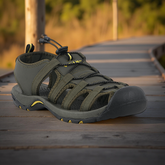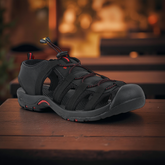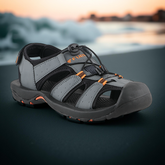Breaking the Myth of Lightweight Safety Shoes: A Cautionary Tale
In the world of footwear, a common belief prevails:
lighter shoes equate to better comfort. This might hold true for your everyday trainers, but when it comes to safety footwear, it's an entirely different story.
Lightening a safety shoe often means cutting corners in two critical areas:
1. Safety
2. Quality
Most safety shoes are constructed using materials like PU (Polyurethane) or PVC (Polyvinyl Chloride). One way to reduce weight is by decreasing the density of these materials. However, going below the standard density significantly compromises the shoe's durability and overall quality. It's no coincidence that brands offering consistently lighter safety shoes sometimes fall short on quality benchmarks.
Another method to shed weight is by compromising on the toe cap, a pivotal safety component. These toe caps, typically made of metal, adhere to a straightforward principle: the lighter they get, the more their quality diminishes. Hence, a lightweight safety shoe might hint at a sub-standard toe cap.
While lighter shoes may appear cost-effective initially, the compromises made can have long-term repercussions regarding safety and durability.
As champions of workplace safety, our advice is simple: Before opting for lightweight safety footwear, ensure you're not sacrificing the very essence of the shoe - its protective quality.
Stay informed. Make safe choices.
At Fuel, we prioritize your safety and offer a range of safety footwear that doesn't compromise on protection or quality. Explore our collection to make a safe and informed choice.







1 comment
Need to use prior to order.